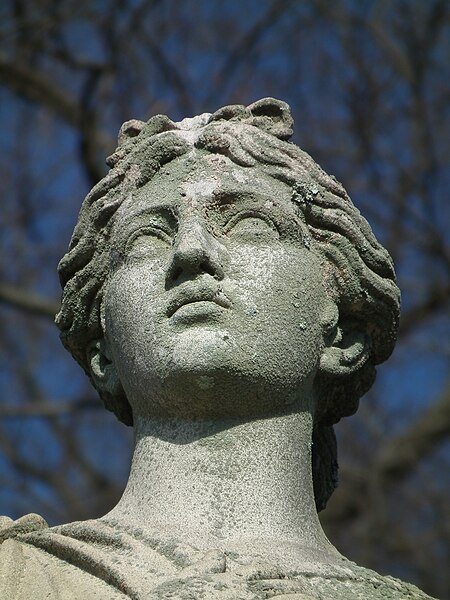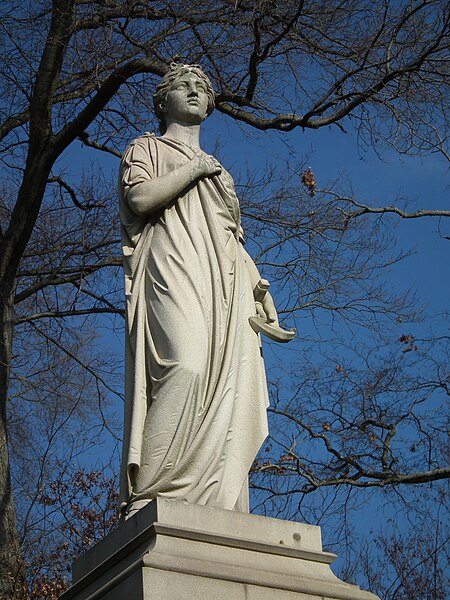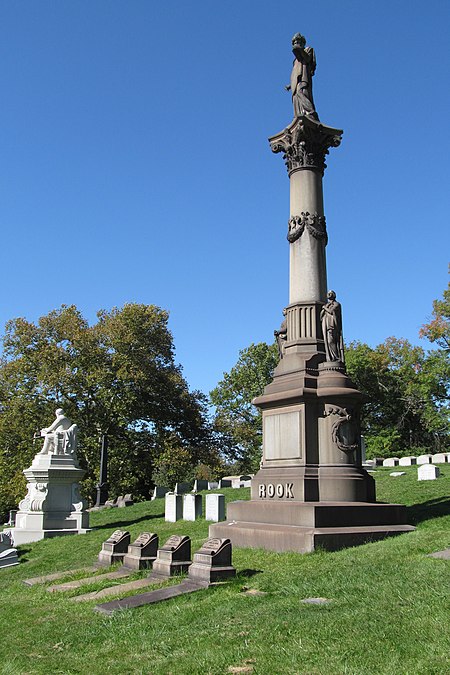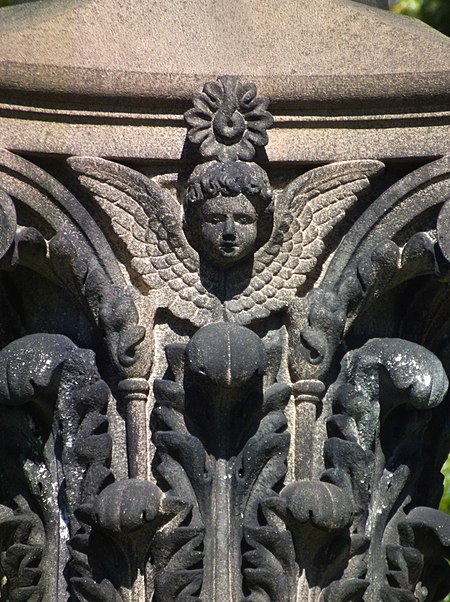
A fine statue of Hope with her portable anchor surmounts the monument to steel baron James Laughlin (of Jones & Laughlin), who died in 1882.



A granite monument with a crumbling marble statue on top; it was probably allegorical, but one of the arms would have held the key to the allegory, and both are gone. If old Pa Pitt had to guess, he would suggest that this was a statue of Hope, with the left arm holding up an anchor and the right pointing heavenward. This is certainly a good demonstration of the different aging properties of the two kinds of stone.
The statue may date from 1878, the year the cemetery opened, when the first Martin was buried here; old Pa Pitt suspects that the base is later, replacing an earlier base that had been damaged or become illegible. The individual gravestones in front of the monument are matching in style, and look like the style of the early twentieth century, though they include dates back to 1878. Father Pitt’s guess is that the original base bore inscriptions for all the Martins and Aulls buried up to the time of its replacement.




An elaborately Victorian column with a recording angel at the top and statues of Hope and Faith on the lavish base. (We notice the absence of Charity, perhaps because the Rooks decided to take their money with them in the form of this monument.)










Note how the shadow of the angel is moving across the Lewis-Elliott monument behind it. If we wait just a few minutes…

Perfect.